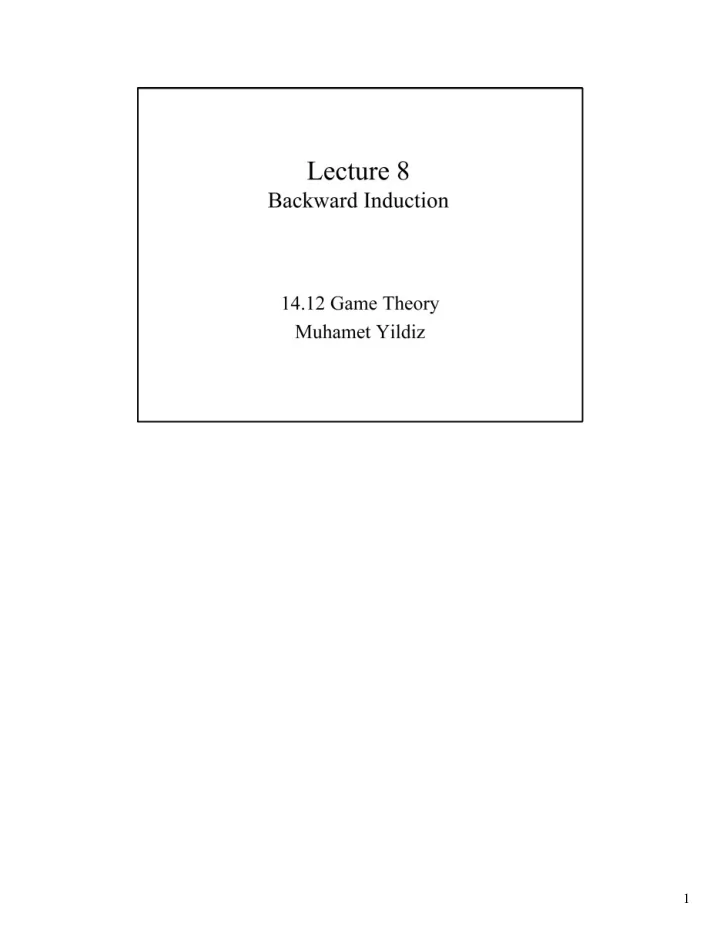

Lecture 8 Backward Induction 14.12 Game Theory Muhamet Yildiz 1
Road Map 1. Backward Induction 2. Examples 3. Application: Stackelberg Duopoly 4. [Next Application: Negotiation] 2
Definitions Perfect-Information game is a game in which all the information sets are singleton. Sequential Rationality: A player is sequentially rational iff, at each node he is to move, he maximizes his expected utility conditional on that he is at the node - even ifthis node is precluded by his own strategy. Backward Induction: Apply sequential rationality and the "common knowledge" of it as much as possible (in finite games of perfect information). 3
~ ,-,-,- A game 1 A 2 a 1 a (1,-5) d D (4,4) (5 ,2) (3 ,3) 4
Backward Induction Take any pen-terminal node ,----- - 1 Pick one of the payoff vectors (moves) that gives 't he mover' at the node the highest payoff Assign this payoff to the node at the hand; Eliminate all the moves and the terminal nodes following the node Yes No ( The picked moves ) 5
Battle of The Sexes with perfect information F (2,1) (0,0) (0,0) (1 ,2) 6
Note • Backward Induction always yields a Nash Equilibrium. • There are Nash equilibria that are different from the Backward Induction outcome. • Sequential rationality is stronger than rationality. 7
Matching Pennies (wpi) 1 Head Tail 2 2 head head tail (1 ,-1) (-1 , 1) (-1,1) (1,-1 ) 8
~ - r-"I y - d ->r-7 A game with multiple solutions A 2 x a (1,1) D z (0,2) 1 (°") ( I , I) a (2,2) 'd ( 1,0) 9
Stackelberg Duopoly Game: p N={1,2} c=o; 1. Firm 1 produces q, units 2. Observing q" Firm 2 produces q2 units 3. Each sells the good at price P = max{O,1-(q,+q2)}' Q 1 nlq" q2) = qJ!-(q,+q2)] if q,+ q2 < 1, ° otherwise. 10
MIT OpenCourseWare http://ocw.mit.edu 14.12 Economic Applications of Game Theory Fall 2012 For information about citing these materials or our Terms of Use, visit: http://ocw.mit.edu/terms.
Recommend
More recommend